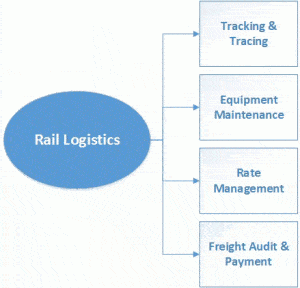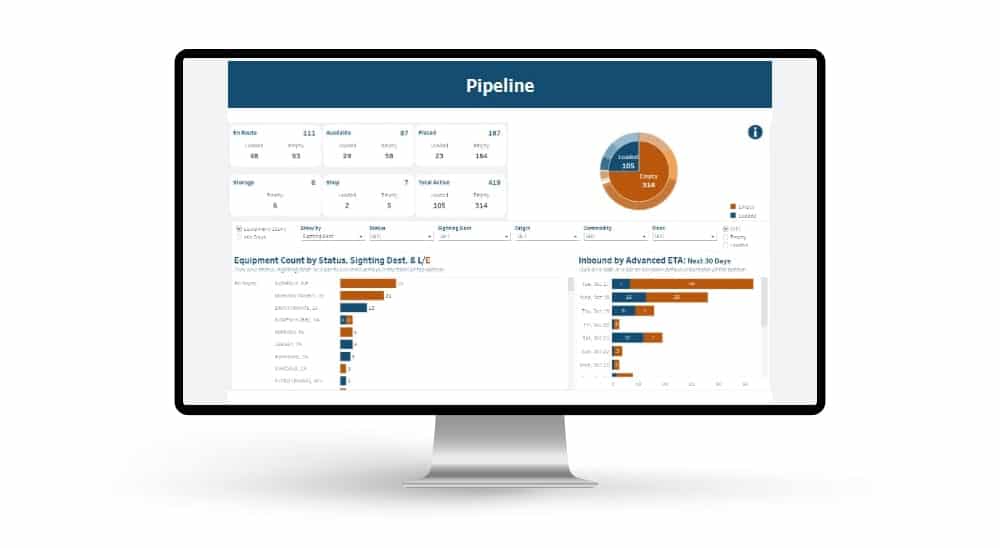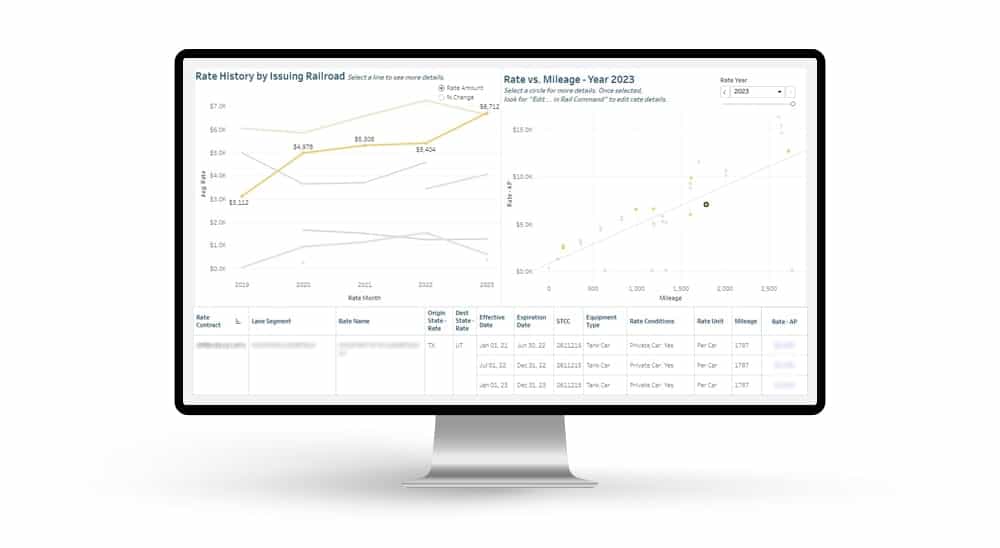Many companies have made the decision to outsource their trucking, intermodal, or warehousing to third party logistics providers (3PLs). The 3PLs bring to the table a vast amount of knowledge, experience, leveraging capabilities, technology, and continuous improvement processes. In the end, these companies benefit greatly from having best-in-class solutions that allows them to focus on their core business needs. Similarly, opportunities exist to benefit from outsourcing rail logistics functions, though many organizations fail to embrace these benefits. Read on to understand the benefits of outsourcing rail logistics, when it makes sense, and where to start.
What about outsourcing rail logistics?
One transportation mode that is often not thought about for outsourcing is rail. Depending on a company’s industry, their rail spend could be as much, if not more than, other modal types. In a traditional company that manufactures and distributes bulk and packaged commodities, rail may be between 30-55% of their transportation spend. Furthermore, when companies talk about their rail logistics “spend” they typically exclude their costs incurred on leasing or owning railcar equipment, equipment maintenance, and various accessorial charges.
Are you wasting $1,000s on rail spend? Use the Rail Logistics Grader to find out.
Rail is a unique mode. Unlike other modes, rail requires a significant amount of effort and attention due to its variability in service, limited number of carriers, equipment, and maintenance activities. Effective rail logistics management requires a combination of industry expertise, well-crafted processes, rail specific technology, equipment knowledge and analytical capabilities. Typical 3PLs do not possess adequate competency in rail logistics. 3PLs prefer to price on a transactional basis and the cost to manage rail activities is much more variable than truck load tendering and execution. Therefore, many companies presume that outsourcing rail logistics may not be the best option.
Which rail logistics functions should be outsourced?
There are several functions within a company’s rail logistics management activities that are ideal for outsourcing. The day-to-day functions of railcar tracking is the first that comes to mind. However, there are many other activities that go into rail logistics. The diagram below lists the functions that should be considered for outsourcing.

What to consider when selecting a 3PL for rail logistics?
Common concerns when selecting a 3PL for rail may be the fact that you have to relinquish some control of logistics functions, or that your customer service could be negatively impacted. A good 3PL will listen to those concerns, work to ensure your needs are met, provide great customer service, and show accountability. Major goals and short/long term process improvements should be shared. Communication between your company and rail logistics provider must be clear and concise to ensure everyone is on the same page. It is important that you are comfortable with the 3PL so functions and processes run smoothly.
About Us
RSI Logistics is a third party logistics company that focuses on one main thing – making our clients the most competitive shipper in their industry. RSI provides a top-notch team of rail logistics professionals that offer limited to full services for any company that is shipping their freight by rail. If you are looking to reduce your total rail spend and are interested in the idea of outsourcing rail, contact us for more information.


 Automated exception reporting of the railcar tracking data makes it easy to identify and troubleshoot jeopardized shipments, thereby enabling you to provide better service to your stakeholders.
Automated exception reporting of the railcar tracking data makes it easy to identify and troubleshoot jeopardized shipments, thereby enabling you to provide better service to your stakeholders. Receive notification of pending rate expirations. Tariff changes and fuel surcharges can be automatically updated.
Receive notification of pending rate expirations. Tariff changes and fuel surcharges can be automatically updated.